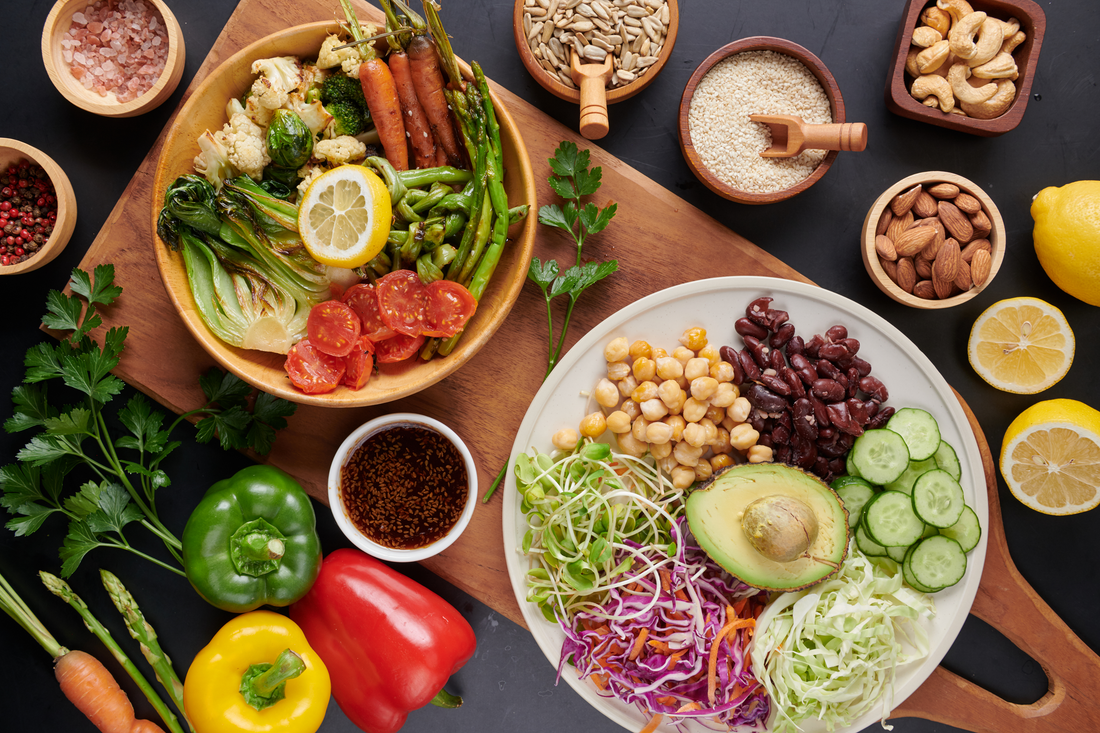
Food and menstruation: how what you eat impacts your cycle
Did you know that what you eat can influence the regularity of your menstrual cycle and how you feel during those days? Diet plays a key role in hormonal balance and can help you alleviate premenstrual symptoms, improve your energy and take care of your reproductive health. In this article, we'll explore how certain foods impact your cycle and what changes you can make to feel better month to month.
The relation between nutrition and the menstrual cycle
The menstrual cycle is regulated by a complex hormonal balance involving estrogen, progesterone and other hormones such as insulin and leptin. A diet rich in essential nutrients can help maintain this balance, while an unbalanced diet can exacerbate menstrual symptoms such as bloating, fatigue or mood swings.
Dietary factors that influence your cycle:
- Sugar intake: Can cause insulin spikes, affecting hormone production and worsening premenstrual syndrome (PMS).
- Healthy fats: Such as omega-3 fatty acids help reduce inflammation and menstrual pain.
- Micronutrient balance: Vitamins such as magnesium and iron play a crucial role in hormone regulation.
Key nutrients for a healthy cycle
Here are some essential nutrients that can help you maintain a healthy menstrual cycle:
1. Iron:
- Important for replenishing blood loss during menstruation.
- Sources: spinach, lentils, lean red meat.
2. Magnesium:
- Relieves menstrual cramps and reduces anxiety.
- Sources: nuts, bananas, dark chocolate.
3. Omega-3:
- Decreases inflammation and menstrual pain.
- Sources: oily fish, chia, flaxseed.
4. Vitamin B6:
- Helps regulate mood and hormone production.
- Sources: chicken, bananas, potatoes.
Foods that can make menstrual symptoms worse
Some foods can intensify menstrual cycle symptoms. It is important to moderate their consumption to avoid unnecessary discomfort.
- Caffeine: Can aggravate anxiety and breast tenderness.
- Ultra-processed foods: Contain high levels of sodium that contribute to bloating.
- Refined sugars: Increase mood swings and fatigue.
- Alcohol: Interferes with hormonal balance and aggravates fluid retention.
Tips for a balanced diet during your cycle
- Prioritize fresh and fiber-rich foods.
- Increase your water intake to avoid fluid retention.
- Opt for lean protein sources to keep your energy stable.
- Do not skip meals, especially during the luteal phase, to avoid energy dips.
Diet can be a powerful ally in maintaining a more regular and less symptomatic menstrual cycle. Making small changes in your diet, such as reducing your intake of refined sugars and increasing key nutrients, can make a big difference in how you feel throughout the month.
Start taking care of your cycle through your diet today and notice the changes in your well-being!





